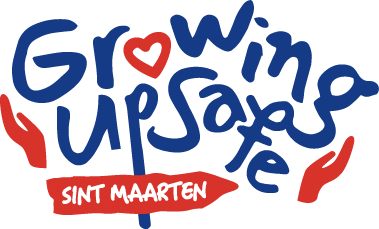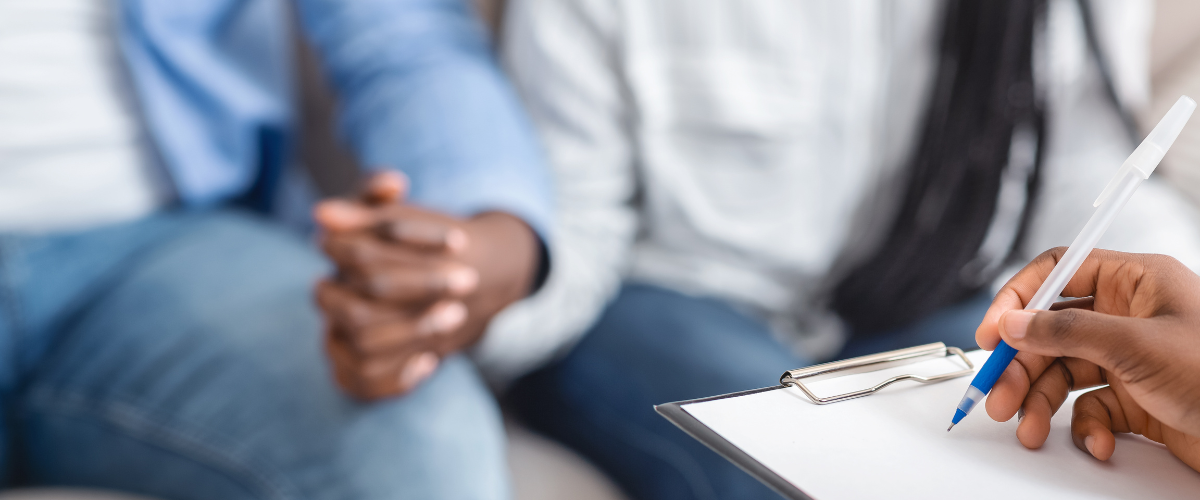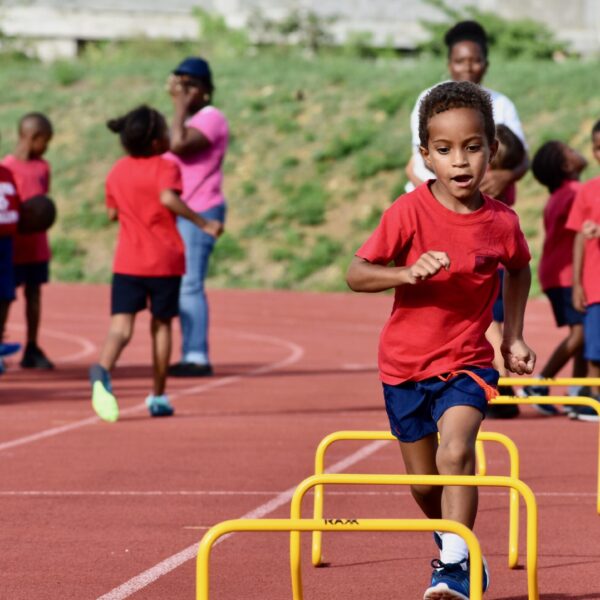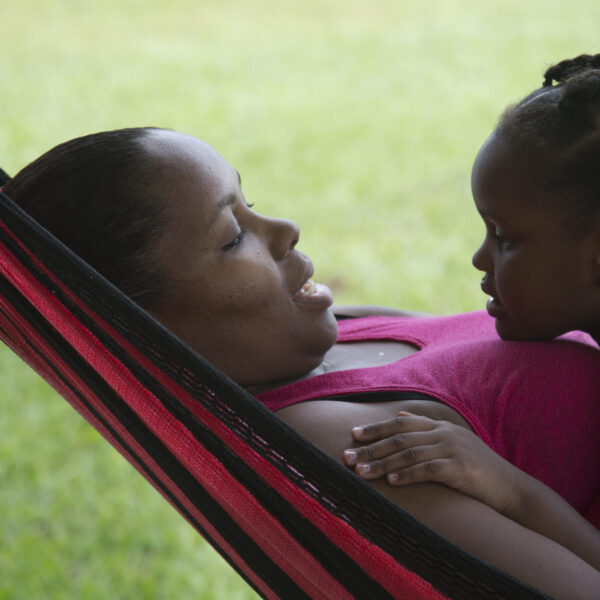“Every child is unique, which means each child will have different needs or strengths”, says Leona Neptune, a psychologist at Student Support Services Division (SSSD). The same goes for coping with disasters. Some will cope well, while others will need help processing.
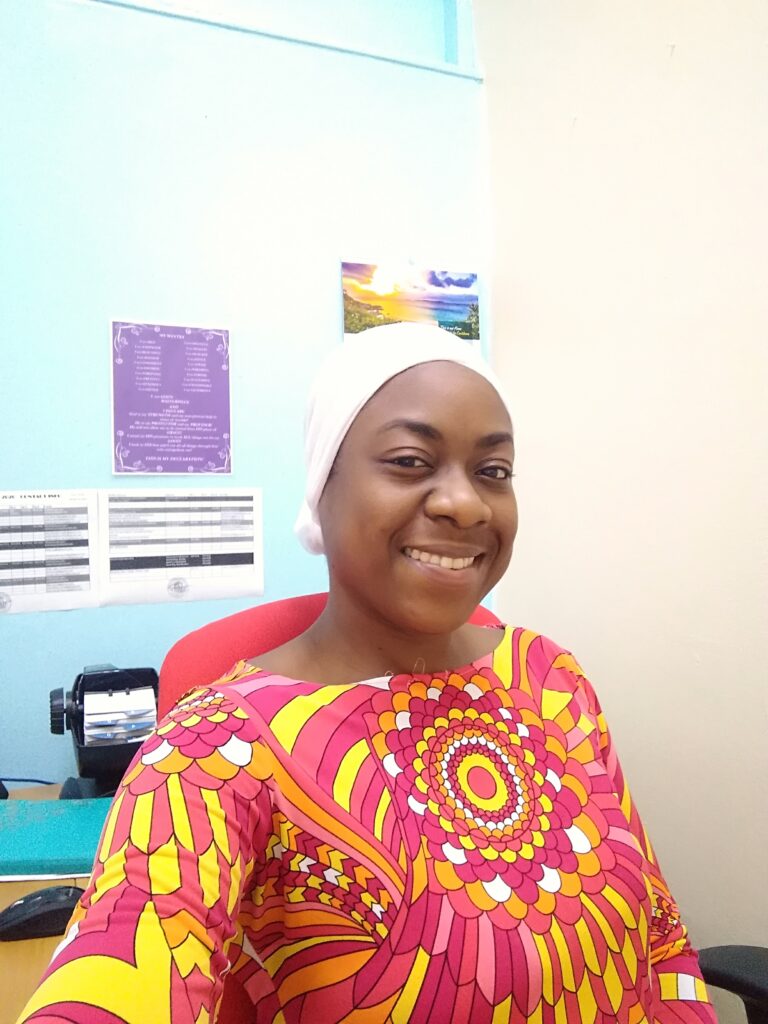
Leona is a psychologist by profession but prefers to be called a counselor or therapist. “When people hear the term ‘psychologist’ they often think of someone who tells you what to do and magically solves your issues. However, the term ‘counselor’ or ‘therapist’ is associated with supporting people through a process. People know from the get-go that they will receive guidance but will have to do the work themselves to make a change.”
Guidance and understanding are qualities that Leona believes can go a long way in parenting a child or helping someone out. To achieve this, she believes in maintaining ‘open communication’ the families that she gives counsel to.
Keeping in close communication with families, especially those in crisis, helps them to know that someone is there supporting them through their time of trial. She believes communication should also be considered when preparing a child for a disaster such as a hurricane: “We live in a hurricane-prone area, so hurricanes are a fact of life.
We have to be careful not to make this more dramatic than it needs to be. As children growing up our parents did not sit us down to talk about hurricanes. We hear about them when they shared ‘old-time stories’. Whenever a storm was coming, we saw our parents prepare by gathering basics like, water, flour, sugar, powdered milk, kerosene for the lamps, matches, flashlight, radio, and batteries. We boarded up the windows and waited for the storm to pass. It was all very matter-of fact. We need to remember what worked for our forefathers and bear in mind that not all children will experience a storm the same way; some will cope well, while others will need help processing.”
Open communication, how do you achieve this?
“In counseling, it is the responsibility of the therapist to make people feel safe and heard. Try to listen without judgment, and really hear what he or she is experiencing from their perspective. It is important for the therapeutic relationship to understand what your client is experiencing in order to help him or her process it in the best way possible.”
But children often don’t know what is good for them, right?
“This is why they are given parents. Parents guide their children with love, provide structure for them, teach them responsibility and help them process the information around them. As a counselor, your goal is to help parents understand how their children see what is happening around them, and then work with the parents to correct what is going wrong.
‘It is tough to always listen and consider the feelings of people around you, especially if you are in a stressful situation yourself’
Each child has his or her own feelings, thoughts and opinions. It is the job of the parents to guide those feelings, thoughts, and opinions in the best way possible. They may know when children feel safe, scared, happy or sad, as they are there to help them navigate those feelings and put them into perspective. This is why routine, structure and discipline are so important. Children need boundaries to feel safe. What you communicate to your children is important. When children know what to expect, it gives them something to work towards. The better your child knows you, the better you will be able to advise and guide him or her by providing a good example for them to follow. Children will not always do what you say, but they will always do what you do.”
You make it sound easy!
“It isn’t always, of course. It is tough to always listen and consider the feelings of people around you, especially if you are in a stressful situation yourself. It all comes back to routine, structure and discipline. We all make mistakes and can react badly in certain situations, which is normal. When there is order in your home or family environment, children know what is expected and may be less likely to be traumatized when things change unexpectedly, such as is the case with hurricanes. Research shows that children who have been raised with a sense of routine, structure and discipline are better able to cope with major life changes.”
Talking about stressful situations, do you remember your first hurricane?
“The first hurricane I remember living through was Hurricane Hugo in 1989. I don’t remember feeling scared, I think my dad and mom kept calm, which also kept me calm. Yes, there was some damage, but life just continued. Hurricane Luis made more of an impression on me. However, I think it may have been more traumatic for my dad because he had to make sure we did not get hurt. Again, I think because he stayed so strong, I remember feeling safe.”
How do you help prepare a child for a disaster such as a hurricane?
“Depending on their age, children can assist in the preparation around the house. You can take them along to get supplies, listen to the weather forecast together, etc. If they have questions, answer them but do not dramatize the experience. Let them know what they can expect and let them know what to do to stay safe.
Every person, and every child, reacts differently to situations – what you might find scary, might not be so to your child.
Also, I think one thing we have to keep in mind when talking with our children about disasters, or other ‘scary’ subjects, is that they might not be scared in the first place. Do not project your own fears onto them. Every person, every child, reacts differently to situations – what you might find scary, might not be so to your child. If your children say they are ‘ok’ and they are not acting ‘unusual’ – then believe them.”
How can professionals working with children help?
“By reinforcing all I have talked about here. For example, schools should teach preparedness and help their students deal with the aftermath of a disaster. This is often done through informational classes, activities, or excursions. Some schools also invite people that deal with disaster situations to give presentations, such as firefighters or nurses.
In addition, when students learn and share with their classmates, it helps normalize the situation and makes them feel like they aren’t alone. Learning from each other increases our empathy and gives us different perspectives on a situation.”
Any other tips?
“I like to remember this simple rule: we are not the only person experiencing us; we do not exist in isolation. It is important to self-reflect and realize how your actions affect others.
When it comes to preparing children for natural disasters, it is important to provide structure, communicate well and model the best behaviour possible. And help them process their thoughts and feelings in the aftermath.”
